Southern-Style Sisterhood
How the Women of Nashville Claim Their Space
Nashville, Tennessee is well known as the Music City, but the rest of the performing arts scene doesn't get much attention. This series highlights Nashville’s lively artistic community, built on a foundation of interdisciplinary collaboration. In this “It City,” artists are paving a way forward for live performance while wrestling with an economic boom and rapidly changing needs for representation on our stages. When there's a fresh, funky performance around town, Jessika Malone can likely be found at the center of it. She follows a strong legacy of women who have made the Nashville arts scene grow and thrive over the years, leaving their fingerprints across mediums and generations in powerful and unforgettable ways.—Daniel Jones, series curator
Nashville is a town with many nicknames but I’ve always called her “home.” You may have heard the capital of the Volunteer State referred to colloquially as Music City, the Buckle of the Bible Belt, or perhaps, my favorite, the Athens of the South. Fittingly, we have our very own Athena, which is apt as our city is full of goddess magic: women who stand tall and serve the greatest of goods by brilliantly creating and sharing all manner of sacred spaces.
As a girl, I would picnic with my grandparents outside Athena’s palace, our perfect replica of the Parthenon, and walk the banks of the Cumberland at Riverfront Park as we played our favorite game, “let’s pretend.” The premise was simple: we’d playfully pretend to be from somewhere else, taking on the personas of tourists like the many who frequented those spots, traveling to town to take in where the legends had once lived. Acting as outsiders, we’d chat with folks on their way into Tootsie’s, Hattie Louise Bess’s honky-tonk home away from home for fledgling artists, or those making a pilgrimage to our mother church, the glorious Ryman Auditorium, made magnificent in no small part by the legendary Lula Clay Naff, America’s First Lady of theatre management.
We’d make up fake names and fake towns and listen in as visitors would relay what they found so special about our city, why they had wished to spend the little vacation they had in our midst. We’d ask after where they’d just been and what they still hoped to see. We’d feign sympathy as they complained of blisters from newly bought boots—there’s no surer sign of someone who ain’t from around here as fresh footwear on lower Broadway.
This game was my first theatre, putting myself in others’ shoes and seeing my city anew through the eyes of an outsider. It seemed everyone from everywhere else knew we had something special, and sometimes that’s just what you need to remind yourself of the magic when you think it’s lost.
There’s been a whole lot of fuss around these parts now that the New York Times named us an “It City,” and you can chart how we not-so-suddenly became the bomb, or research our reputation for being one big bachelorette party. It’s been said we’re the friendliest, and the estimation is that somewhere around a hundred new faces flock here every day. We’re in a moment in our history where it feels like everybody from everywhere wants to be here—unless you were born here, and then you had best know better than to stick around.
In fact, being a born-and-bred Nashvillian these days affords a kind of mythical status. Those of us who are natives are known as “unicorns,” such a novelty in this so-called “new” Nashville that we necessitate a T-shirt so we might be recognized for our rare, potentially endangered nature.
Why is our hometown the envy of everyone, yet we are so eager and expected to abandon her?
When I had no choice but to leave home to pursue my MFA in directing (there is not, as of yet, such a degree offered in our city) and expressed to friends and colleagues that I intended to return to Nashville to begin my theatre career in earnest, the response was an inevitable mixture of surprise and curiosity.
But why? Why is our hometown the envy of everyone, yet we are so eager and expected to abandon her? As a center for songwriting, Nashville is known as the destination for hopefuls who often land with little more than a guitar strapped to their back and the determination to tell their stories on the world’s stage.
But Nashville is, in fact, more than Music City. While we might not yet be known nationally as a larger market for theatre, like our sisters New York and Chicago, it’s only a matter of time before the South’s best-kept secret gets out and everybody’s talking about my town because of the extraordinary women who run it.
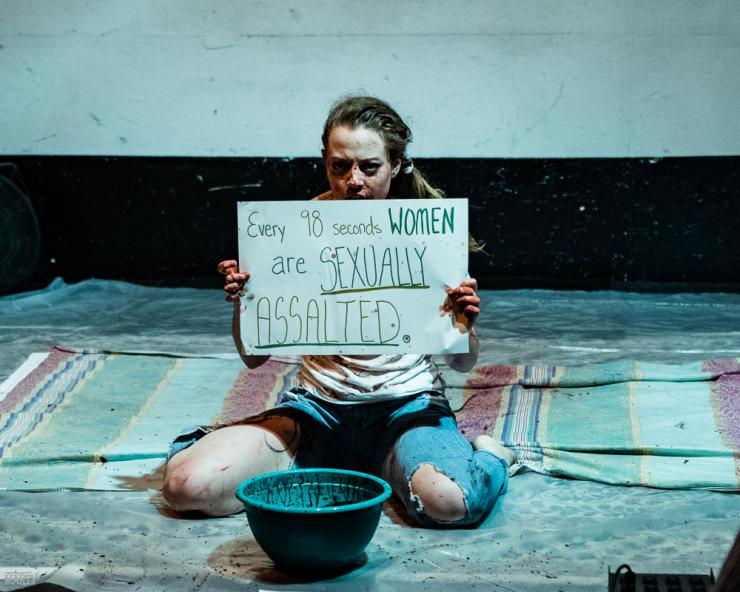
From the time I was a girl, living the life I wanted right here at home seemed possible in part because I saw other women living it. To aspire to be a professional performance-maker, a theatre artist, is no easy trajectory to navigate, and I have had the extraordinary fortune of benefiting from the models who have helped make my hometown the marvel that it is. In the great legacy of Lula, you will find ladies at the helm of so many of our most significant arts organizations, at once holding down the fort and paving the way for what’s next in Nashville.
From the stalwart institutions who broke ground such as Nashville Repertory Theatre, led by Rene Copeland, and the Nashville Shakespeare Festival, run by Denice Hicks, to the courageously provocative collectives like Actors Bridge Ensemble, founded by Vali Forrister, and the youth development programs of Cori Laemmel’s Theater Bug, women are running the rooms and inspiring other women to take up space in the pursuit of performance.
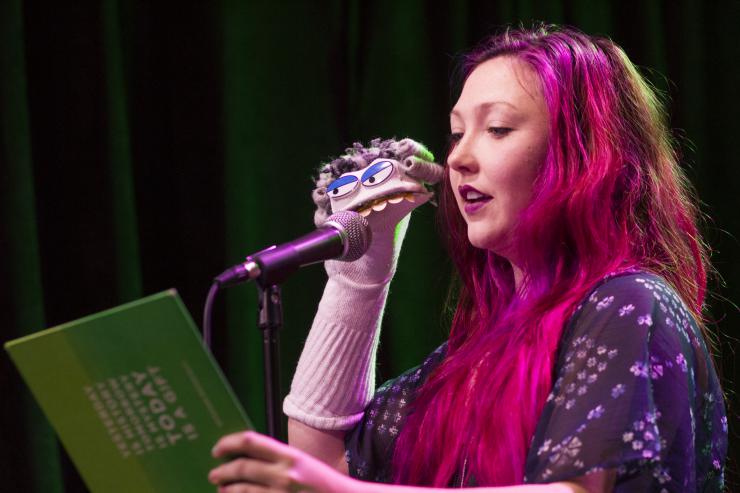
Anchored by the work of women, Nashville’s performing arts scene blossomed throughout my youth. Inspired by the explosion of unique and diverse expressions in performance mediums, I founded the Sideshow Fringe Festival, with my colleagues Jaclyn Johnson and Mitch Massaro, in an effort to give space and support to the new generation of emerging artists reaching for resources, deserving to be seen. Together, we sought to help others make what they wanted to make in the world and aimed to provide a platform for outside-the-box or “fringe” art, to offer fledgling makers their first foothold in self-production with an opportunity to experiment across disciplines. We sought to challenge artists to innovate and audiences to expand their definition of theatre, to incorporate an array of approaches so that our creative community might progress through the meaningful connection created by the sharing of resources.
The overwhelming majority of our fringe artists identify as female, and it has been extraordinary to watch as groups such as FALL, a contemporary aerial dance company, and Sailors and Maidens, a puppetry duo, connect with new collaborators and broaden the scope of their work through the radical kindness unique to Nashville. Rather than compete, we collectively choose to empower one another by offering support to any and all endeavors attempted by our fellow makers.
Nashville ladies see the necessity for space, they take what’s here, and they make it work anywhere and everywhere they can.
Now, seven years after Sideshow Fringe’s inception, women from all manner of creative disciplines are passionately self-producing all year round and all across the city with courage, tenaciously claiming space with and for each other. I stand astounded at what wonders the women of my city are making happen together and for the better. They are changing the game as they play by their own rules, reinventing spaces to respond to a venue-poor system and revising process to center themselves in the storytelling.
Several examples stand out just from the past two months. Amanda Card, who first tried her hand at directing in the early years of the fringe festival with a brilliantly conceived cutting of Hamlet, commandeered an old church and created a battlefield of the heart alongside Kristin McCalley Landiss and company for their independent production of Charles Mee’s Big Love. Madeleine Hicks, who staged her first solo show, Paper Dreams, at Sideshow, turned a tiny cafe into a pop-up playground for her original, self-produced presentation, Potty Mouth.
Nashville ladies see the necessity for space, they take what’s here, and they make it work anywhere and everywhere they can. Most recently, I had the pleasure of creating with a core team of female-identifying devisers to develop a cabaret in the backroom of a local bar. The event was inspired by the writing of an Ingram New Works visiting playwright and friend, Tori Keenan-Zelt. As I prepared for what would be my first foray as an independent producer, I found myself floored by the many offers of assistance from the women around me. Because I had once helped them tell their stories, they wished to help me tell mine. On the day of the event and in the eleventh hour, my phone flooded with offers of helping hands and encouraging words. This city’s sisterhood isn’t just lip service—it’s real, rare magic indeed.
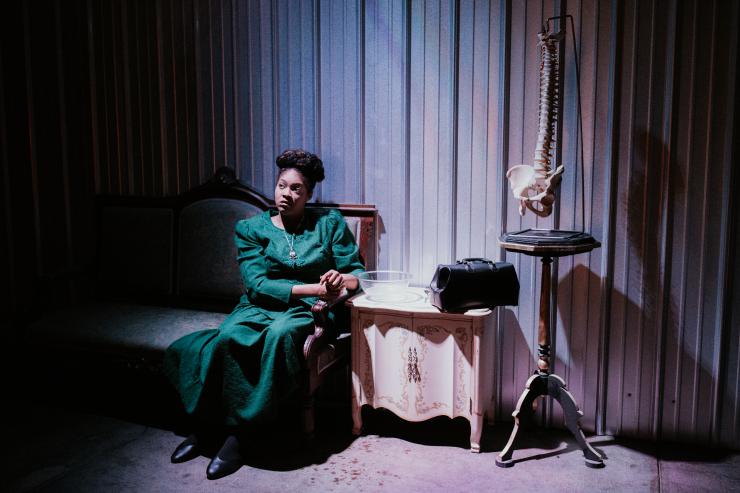
And that magic is getting passed on to the next generation. One of the greatest treasures our city has to offer is Vali Forrister’s extraordinary Act Like a Grrrl program, which offers mentors to young women in the process of self-revelatory, autobiographical writing and performance. The work of Act Like a Grrrl actively combats the scarcity myth that suggests there is a limited amount of resources for women and thereby they must do battle with one another for it. Act Like a Grrrl models for girls what the adult women in our city understand: the secret to success is to share it.
When I think about what’s next for me as a maker and for my beloved city, I know it’s rooted in our history of women holding space and the door open for each other. I see our future in the nurture provided to artists by women like Audra Almond-Harvey and her interdisciplinary enterprise abrasiveMedia, in the vision of Lauren Snelling at Oz Arts, in the dedication of Banning Bouldin and her dancers in New Dialect. When I take a moment and play as a girl again, pretending to be from somewhere else, looking with fresh eyes, I see the unmistakable magic among us and know my home has helped make me the kind of maker I’m proud to be.

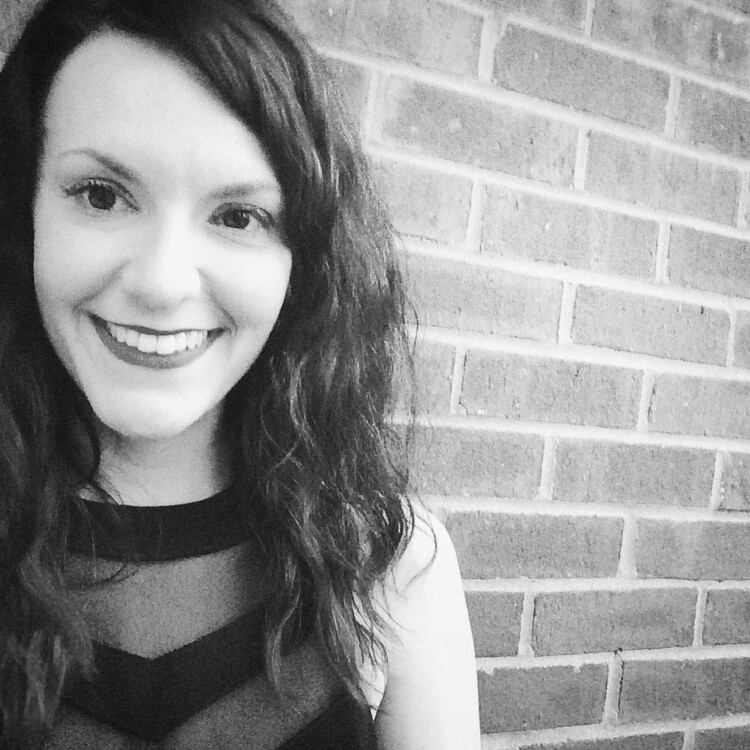
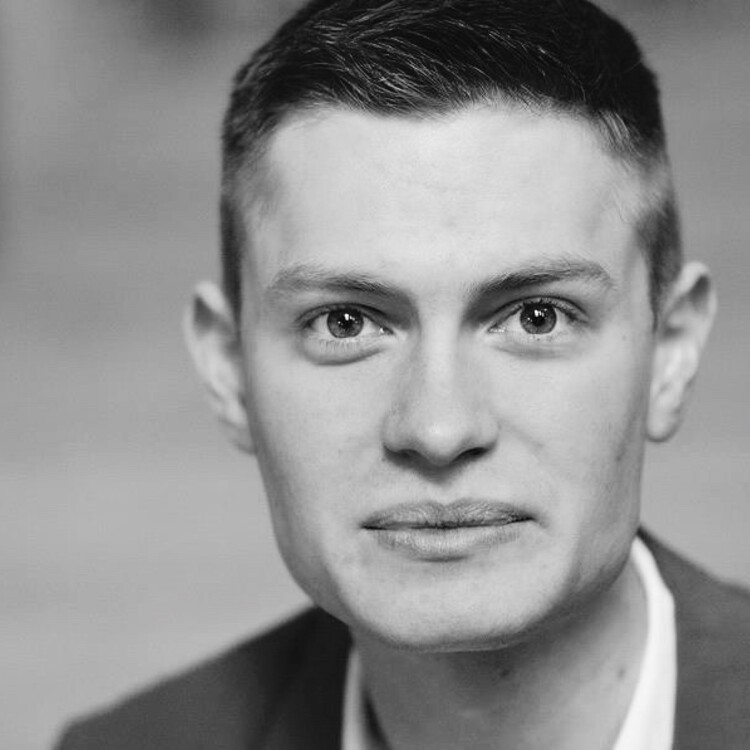
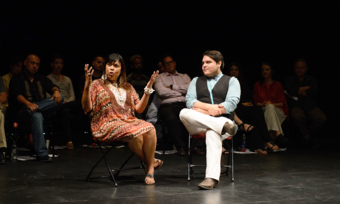


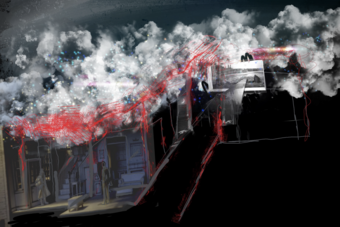


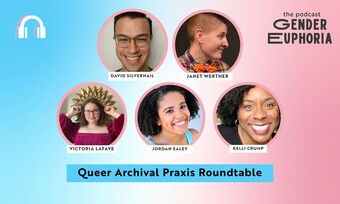






Comments
The article is just the start of the conversation—we want to know what you think about this subject, too! HowlRound is a space for knowledge-sharing, and we welcome spirited, thoughtful, and on-topic dialogue. Find our full comments policy here